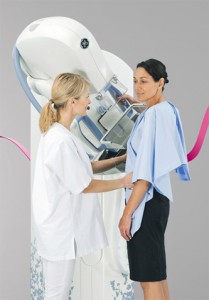 Knowing the “ABC’s” of radiation therapy may have protective effects on the lungs and heart of a breast cancer patient. A prospective trial conducted at Thomas Jefferson University in Pennsylvania and Duke University in North Carolina by Harriet Eldredge-Hindy, MD, Pramila R. Anne, MD, and colleagues showed that delivering radiation through an Active Breathing Coordinator (ABC) reduces the amount of radiation exposure to the heart and lungs by at least 20%.
Knowing the “ABC’s” of radiation therapy may have protective effects on the lungs and heart of a breast cancer patient. A prospective trial conducted at Thomas Jefferson University in Pennsylvania and Duke University in North Carolina by Harriet Eldredge-Hindy, MD, Pramila R. Anne, MD, and colleagues showed that delivering radiation through an Active Breathing Coordinator (ABC) reduces the amount of radiation exposure to the heart and lungs by at least 20%.
“ABC was well tolerated and significantly reduced mean heart dose (MHD) while preserving local control,” stated the authors in their report, “Active Breathing Coordinator Reduces Radiation Dose to the Heart and Preserves Local Control in Patients with Left Breast Cancer: Report of a Prospective Trial,” published in Practical Radiation Oncology.
These results are meaningful for patients with left breast cancer who face a tradeoff between effective tumor destruction and healthy tumor preservation. Often times, radiation therapy can reduce the risk of local-regional recurrence while increasing overall survival, but strong doses can affect the heart and lungs in the form of ischemic heart disease and lung cancer. Due to the proximity of these organs to left breast cancer, minimizing exposure through the safe, feasible method of ABC may be an alternative option.
To explore this hypothesis, the researchers identified 112 left breast cancer patients with stage 0-III tumors and assigned each to one of two groups depending on the estimated benefits of reducing MHD. If a patient’s MHD was predicted to decrease by 5% or more using ABC, that patient would be assigned to the ABC group. If not, the patient would be assigned to the active comparitor group undergoing free breathing radiation therapy. In total, 72% of patients received radiation therapy with an ABC.
The actual procedural details were similar between groups, with a median prescription dose of 50.4 Gy in both. The difference in treatment came down to instructing patients to hold their breath for up to 20 seconds if they were in the ABC group. Following treatment and at times of three months, six months, and every 6-12 months thereafter, all patients were assessed for acute toxicity via the Common Terminology Criteria for Adverse Events.
[adrotate group=”1″]
When analyzing the results of the study, the authors found that ABC reduced MHD by at least 20% in the majority of patients. Compared to free breathing radiation therapy, ABC radiation therapy reduced MHD by 1.7 Gy, a relative change of 62%. There was also a significant reduction in radiation dose delivered to the left lung.
Benefits of radiation therapy along with ABC translated into an 8-year estimate for locoregional relapse of only 7% and a disease-free and overall survival of 90% and 96%, respectively. “Use of the ABC device during radiation therapy should be considered to reduce the risk of ischemic heart disease in populations at risk,” wrote the authors. This study may potentially alter the way left breast cancer patients are treated with radiation therapy and increase quality of life and survival of affected patients.


